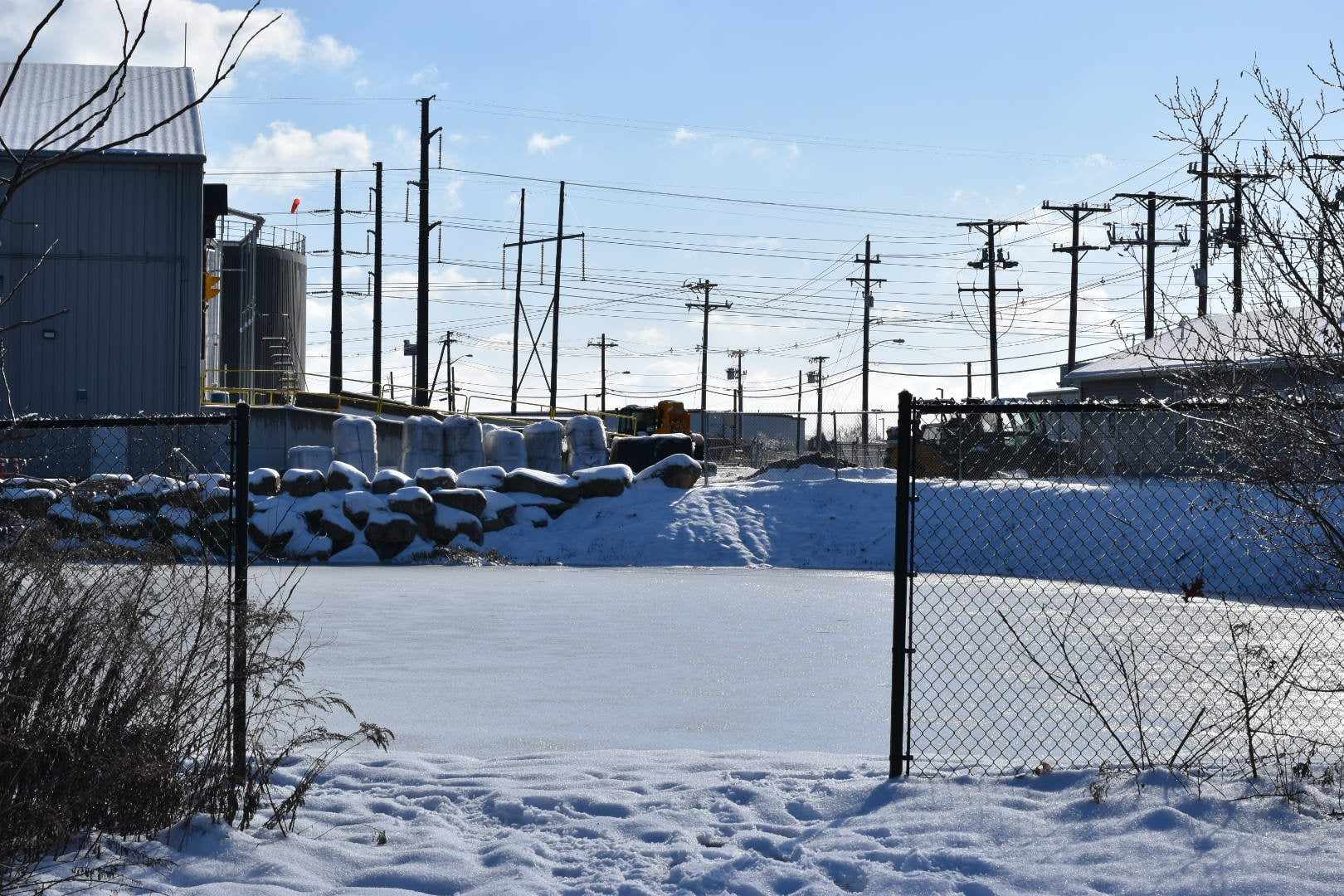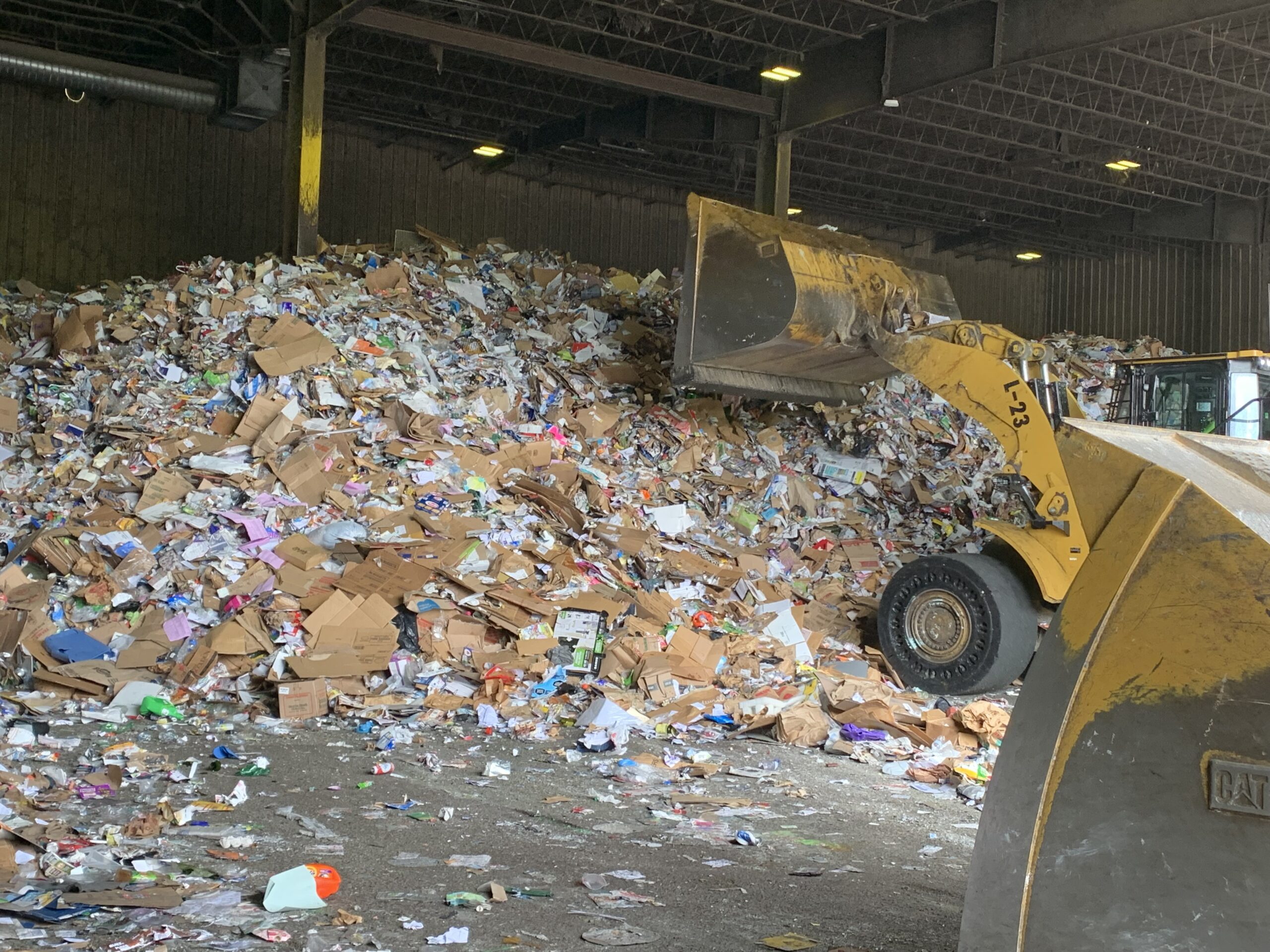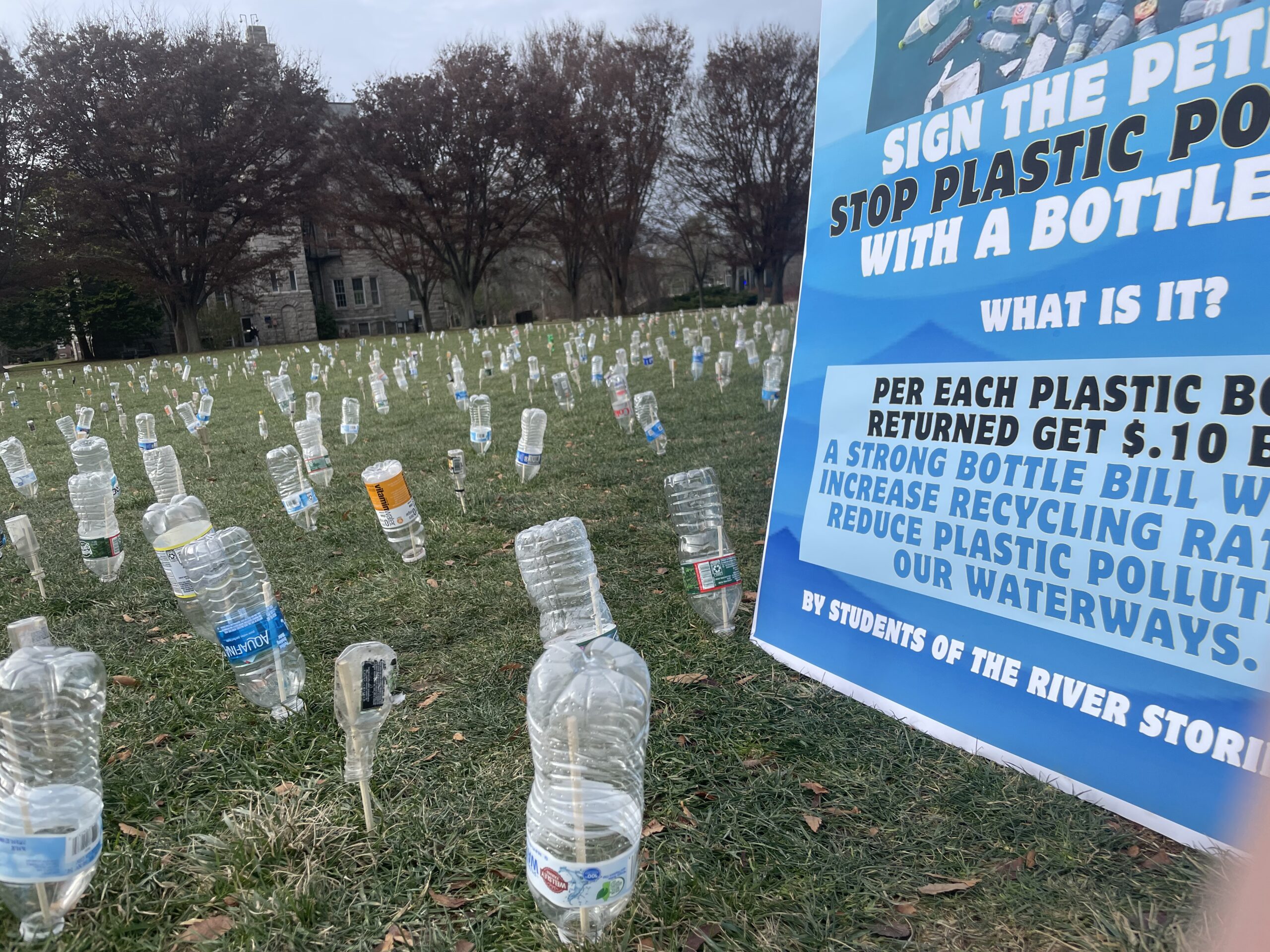The Story Behind Rhode Island’s First Bag Ban
Seven years later, Barrington’s ban on plastic shopping bags set the standard
December 12, 2019
BARRINGTON, R.I. — Banning plastic retail bags may seem like a simple task. After all, everyone seems to be doing it: Cranston, Providence, East Providence, Bristol, North Kingstown … the list includes 16 of Rhode Island’s 39 municipalities.
But while we have come a long way, the latest march in the slow death of single-use plastic hasn’t been easy.
ecoRI News reached out to the Barrington Town Council to ask members about the story of their bag ban, which passed in 2012. It was Rhode Island’s first.
“My colleague, vice president Kate Weymouth, is the founding mother of our bag ban,” Town Council president Michael Carroll wrote in an email. “She has worked so hard to spread the word, and her impact is felt beyond Barrington and even beyond Rhode Island.”
Weymouth has a crisp bob haircut and piercing blue eyes, and, when it comes to plastic bags, spares no punches.
“Plastic bags are insidious,” she recently told ecoRI News. “I went for a tour of the [Rhode Island Resource Recovery Corporation] RIRRC recycling facilities about three months ago, and talk about a horrific experience. At every single station there are people pushing the trash back to give themselves time to pick out the plastic bags. Even when it’s all made its way to the end and waiting in the dock to head to wherever it’s being offloaded, there are still workers picking plastic bags out. It’s unreal.”
For the past seven years, Weymouth has committed countless hours to ridding her town, and the state, of plastic shopping bags. Her mission began with a young activist, hours on YouTube, and a dead albatross.
“Back in 2012, the Conservation Commission brought forward the proposal for a plastic bag ban, and at the same time Environment R.I., headed by young activist named Channing Jones, took the bat on the statewide ban as their issue,” Weymouth said. “And I never liked plastic bags, so I thought this makes a lot of sense; it’s a good idea.”
Weymouth met with Jones to discuss the issue. She learned something that shocked her.
“He told me that of the billions of bags that are produced every year, only 11 percent are recycled,” she said.
Weymouth also learned about the harmful effects of recycling facilities in China, and took to YouTube to see for herself.
“I had never used YouTube,” Weymouth said. “I started at 8 at night and got off the internet at about 2 a.m., and that was life-changing for me.”
Weymouth’s YouTube research led her down a rabbit hole, through videos of towns in China that could no longer farm because of plastic pollution to swirling garbage patches in the Atlantic Ocean.
But it was the images of a dead albatross that really lit a fire.
“There was a photo of an albatrosses carcass, and all that was left was the beak and some of the wing tips and the feet,” Weymouth said. “I grew up every summer of my life in Wellfleet [Mass.], so I’ve seen plenty of dead seabirds, so I thought, what’s the big deal? But then I saw it.”
Tucked in the center of the decomposing carcass was a pile of plastic.
“It suddenly hit me that this was the contents of the bird’s stomach, that was why it died,” she continued, “and that long after the carcass disintegrates, that pile of plastic will still be there for hundreds of years.”
Weymouth shook her head. “That image alone did something in my brain and I can’t unsee it. For me, from that moment on, single-use plastics became a black and white issue. There’s no gray there.”
Weymouth’s crusade to rid Barrington and the Ocean State of plastic retail bags was born.
The first step was convincing the Town Council. To spark discussion, the town hosted a public workshop and three speakers shared their thoughts.
“One was a former Town Council member from Westport, Connecticut, which I think was the first New England town to ban plastic. The second person was a lobbyist from Washington, D.C., who represented what was as the time the ‘Save the Plastic Bag Alliance.’ They’ve since changed terminology,” Weymouth said with a laugh. “I remember thinking, ‘This guy came all the way to our town of 17,000 people to oppose our ban, what is this all about?”
The third person to speak at the workshop was the manager of the local Shaw’s.
“I thought, ‘Oh no, we’re in for trouble,’” Weymouth recalled. “But he said that they had done a straw poll asking their customers how they would feel about plastic bags being removed from checkouts, and he said that there was overwhelming support for getting rid of them. And he said for that reason, regardless of what our decision was, they were going to remove them.”
The argument for banning was convincing. The Barrington bag ban ordinance passed with a 4-1 vote, but with a catch.
“It passed in October of 2012, but the only way I could get the fourth vote was if I put a sunset clause on it,” Weymouth said. “So we set the date that the ordinance would expire unless we revisited it and saw what had happened. … [I]t was implemented January of 2013, with absolutely zero, and I mean zero, public opposition.”
Fast forward to summer 2014, and the sunset clause expiration date.
“The issue came and went, we got rid of the sunset clause, and we thought we were home free,” Weymouth said. “We used the boilerplate language of all the other bag bans passed globally, which is based on what they call ‘T-shirt bags,’ which are 2 millimeters thick. So the language said that bags thinner than 2.25 millimeters were not allowed.”
But the plastics industry, instead of admitting defeat, found a way to turn this law in its favor.
“So what the plastic industry does is they create bags that are exactly 2.25 millimeters thick,” she said. “At the time the first bag bans were written, no one thought they’d make a thicker bag than they needed to, but for plastics industry, it’s nothing for them to make it a little thicker.”
Armed with thicker plastic bags, lobbyists started knocking down the doors of local businesses, selling what they called a “reusable option” to the Barrington CVS, Shaw’s, and Talbots.
“CVS was actually giving them out for free in two different sizes, one of which was literally this big,” said Weymouth, making her hands into a small rectangle. “It was for like a pack of cigarettes or cosmetics. I was almost like I just can’t deal with this anymore.”
But when a concerned resident showed up at the next public comment workshop, town officials knew they couldn’t let the plastic industry circumvent their efforts.
The solution was born of a conversation between Weymouth and council president Carroll, and a hands-on examination of reusable bags.
“So Mike and I sat there, and he took out all his bags and said what’s different from a real reusable bag as opposed to these thicker plastic bags?” Weymouth said. “And we’re looking through the bags and noticed that the real reusable ones all had stitching on the handles. So we said, ‘OK, maybe we should make it so bags must be 4 millimeters thick with stitched handles, not heat-fused.”
The Town Council amended the bag ban ordinance, and, in doing so, changed the way plastic bag bans are implemented.
“Since that amendment, all of the Massachusetts towns and Rhode Island towns who passed bag bans have incorporate that language; it’s become the standard, and the stitched handles are critical,” Weymouth said.
While Barrington has succeeded in being a forerunner in the battle against plastic shopping bags, Weymouth wishes the state would get onboard.
“We now have about half the towns sharing the same bag ban, so we’re hoping that the state would understand that we care about this, and create a statewide law,” she said.
The latest iteration of a statewide bag ban didn’t make it out of the General Assembly’s 2019 session. Until then, Weymouth will continue to be a mortal enemy of plastic shopping bags.




not only should plastic bags be banned but mylar balloons also. I m sick of picking them out of the ocean miles from shore. I ve found as many as 12 in a bunch that are devoid of printing they ve been drifting around so long
dick pastore
In Barrington I asked how the ban on plastic bags was going and was told by a store clerk that it was going well but wasn’t 100%. He said they were still available for 40c each, so they weren’t very popular. LOL
I remember first moving to Providence in 2013 and all the trees had plastic bags dangling from the branches as if they were growing from the vine. It’s amazing to see how much this has decreased in only six years.